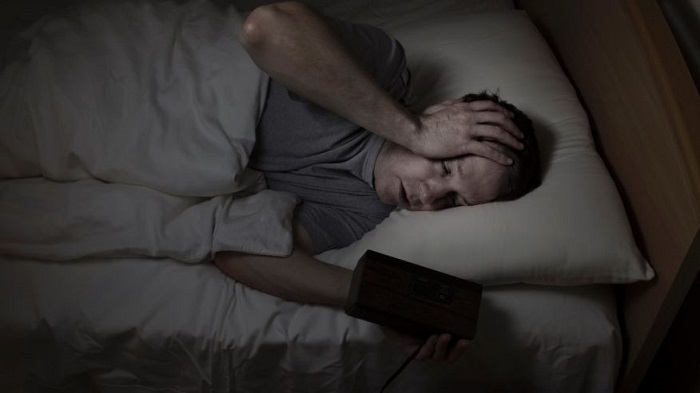1. You go to the bathroom when you really don`t need to.
If you need to go, your body will likely wake you up. But heading to the bathroom unnecessarily (out of boredom, or perhaps because you think you maybe need to go) hinders your body’s ability to find sleep again, says Michael Breus, PhD, a sleep specialist and author of The Power of When. For one, getting up and moving about increases your heart rate—which needs to be lowered to enter into a state of unconsciousness, he says. Flip on the light and you’re also tricking your brain into thinking it’s morning, throwing off your circadian clock, he says. If you need to empty your bladder, get up slowly and calmly and go in the dark.
2. You light up a screen to check the time—or your email.
Any device that emits light along the blue light spectrum (your phone, tablet, or laptop) will stop the melatonin faucet in your brain, says Breus. And since melatonin is your body’s sleep hormone, promoting a state of tiredness, it’s practically impossible to sleep without it flowing strong, says Breus. Apps like f.lux can tint your screen to mimic the actual time of the day (blocking the sleep-obstructing blue light), but devices are engaging even without light—too engaging for a brain that needs to be calm to sleep.
3. You start stressing yourself out.
That brings us to all of that thinking you’re doing. Open your laptop, check your email, or start to think through your next day, and you’re causing autonomic arousal, says Breus. “Your brain is up and going.” If you start to stress, remember: “Waking up in the middle of the night from time to time is totally normal,” says Raj Dasgupta, MD, a sleep expert and an assistant professor at USC’s Keck School of Medicine. “It’s in our DNA to wake up during the middle of the night—our ancestors used to wake up to make sure there were no lions or tigers around.” A few missed minutes of shuteye won’t throw your day—or your health. Phew.
4. You stay in bed, even if you can`t fall asleep.
It’s time to think about your bed a new way: It’s only meant for sleeping. If you can’t fall back asleep within 15 minutes of waking up, relocate somewhere else—like the living room or kitchen—and do something quiet and calming, says Dasgupta. Try reading a book in dim lighting or meditating if you have a practice. “The worst place you want to worry or stress is in the bed,” he says. “Then you condition your body to start thinking, ‘Oh, we’re going to bed? Time to stress.` ”
5. You pop melatonin.
It’s easy to reach for natural sleep remedies like melatonin if sleep isn’t coming easy at 2 AM. But think twice. “The dietary supplement melatonin is not a potent sleeping aid,” says Dasgupta. “It’s good for shifting your circadian rhythm. Usually, we suggest people take it two hours before their desired sleep time.” Take it right before bed or (worse) in the middle of the night? You could throw your body’s internal clock out of rhythm, making it even harder to fall asleep or wake up when you need to, he says.
6. You nosh during the night.
“It is simply never a good idea in the middle of the night to eat,” says Breus. The reason is multi-faceted. For one, food is one of the ways your body helps regulate its internal clock. (When you eat breakfast, your body knows it’s morning, right?) If you’re snacking when you normally don’t, that’s like telling your body it’s morning. Also, if you nosh late, your body has no real way of metabolizing the food, Breus, says. While that could mean weight gain, sleeping on a full stomach is also uncomfortable and can lead to acid reflex, he says.
7. You pull the covers closer.
Temperature plays a huge role in how soundly you snooze. And it’s often too hot temps that bother us most and keep us up, says Dasgupta. Check the thermostat. Both sleep studies and the National Sleep Foundation find an ideal temperature for sleep is around 65 degrees F.
More about:
















































